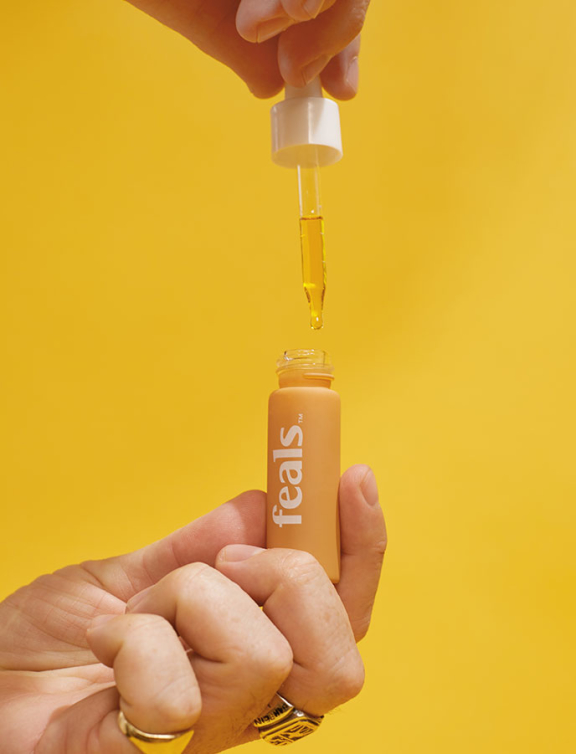Despite its proven effectiveness, journaling has a bit of a PR problem. It’s more frequently associated with teen angst scribbling than a legitimate mental health tool. A regular mindful writing practice has immense emotional and physiological benefits including boosting immunity, curbing PTSD, speeding up wound healing, aiding in injury recovery...the list goes on. Plus, a journal provides a place to set goals, reflect, grapple with issues, keep track of ideas, record results as well as plan, ponder, rant, question, draw, and celebrate. All that is available to you through the simple act of putting pen to paper.
Need to get unstuck? Try a timed free-write.
Commit to an increment of time – even 5 minutes will do – and write continuously the entire time. Don’t lift the pen or pencil up off the page, get a good flow going. Run out of things to say? Then write about having nothing to say — it can be a surprisingly rich vein to tap.
Afterward, note how you feel. Take a beat and re-read what you’ve written and try to do it without a critical voice. No need to copy edit, this isn’t intended for any third party. See if you can re-read your own writing with presence. The act of paying attention to your own voice without judgment can be a powerful way of showing up for yourself.
Build your action plan
A dedicated notebook can be an effective tool for tracking and planning. For instance, former Red Sox pitcher Curt Schilling could be seen on the bench between innings writing notes on the pitches he delivered to certain players during particular situations. He used a journal as a workbook and focused on the technical aspects of his sport.
Whatever your personal goal might be — whether it’s related to work, health, finances, creativity — take the time to write it down. Fully flesh out what it is and answer why it’s important to you. But don’t stop there. Next, map out concrete, actionable steps to achieve that particular goal. Break it down into smaller commitments, things you can achieve on a daily or weekly basis. This becomes your up-level action plan, and you can go back to it, tweak and refine as you continue to gather information.
Man’s best friend
Think mindful writing is just for the ladies? Think again. A study out of UCLA cited that men derived 50% greater benefit from keeping a journal than women. Fifty. Why? My takeaway is that there are so few culturally accessible avenues for men to express their emotions that a journal becomes an important ally.
As a woman, I easily connect and share with my closest friends. It isn’t unusual for us to reach out to one another when we are having a tough time. But men often don’t have that luxury. Prevented by a mix of stigma and habit, men generally don’t have as much of an opportunity to work through their emotions with their peers, which is why a notebook can be such a powerful tool for the men in our lives.

Make time to unplug
And while I welcome any form of journaling, there is evidence that doing it long-hand versus typing provides greater benefit, as well. According to that same UCLA study, writing by hand seemed to have a bigger effect than typing on a keyboard. With skyrocketing levels of screen time, the simple analog ritual of opening a notebook and picking up a pen is a welcome respite. No blue light, no being tethered to an external power source. The motor action of moving your hand across the page creates neural connections in your brain, helping increase the upside of the experience.
CBD can help
There is an innate synergy between CBD and a regular writing practice. Feeling anxious? You’re in good company. But you don’t need to stay in that zip code. I find that CBD helps people find permission to put their emotional experience on the page. I often hear that newbies are hesitant to journal because they don’t know how, or they think they aren’t a good enough writer. Remember, there is no wrong way to journal – you just pick up a pen, crack a notebook and go. CBD helps to quell the inner critic, providing enough self-generosity to find your words.
Unbottled emotion
It’s a given that bottled-up emotion is fundamentally unhealthy and, over time, can be intensely toxic. Shutting up is not a good long-term coping mechanism. In extreme circumstances, we may be afraid of expressing our feelings as if compartmentalization would break and we wouldn’t be able to recover. That’s fear running the show. The page is a safe place to process your emotional experience. A little CBD can provide a welcome therapeutic assist here, helping you relax and be present in order to access those feelings and let them come to the surface. Even things you don’t feel comfortable saying out loud can be written down without consequence and it can be immensely cathartic to externalize them.
Laura Rubin is an LA-based creative coach and founder of AllSwell. Follow her on Instagram at @lauralrubin and @allswellcreative and learn more about her personalized creative coaching sessions and workshops here and grab one of her notebooks while you're at it.